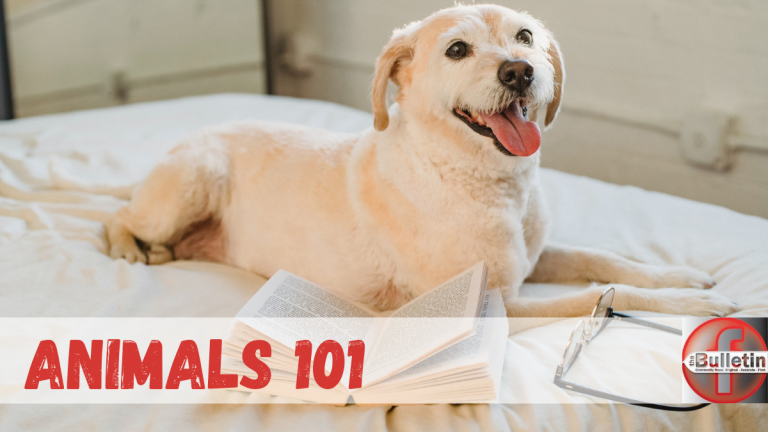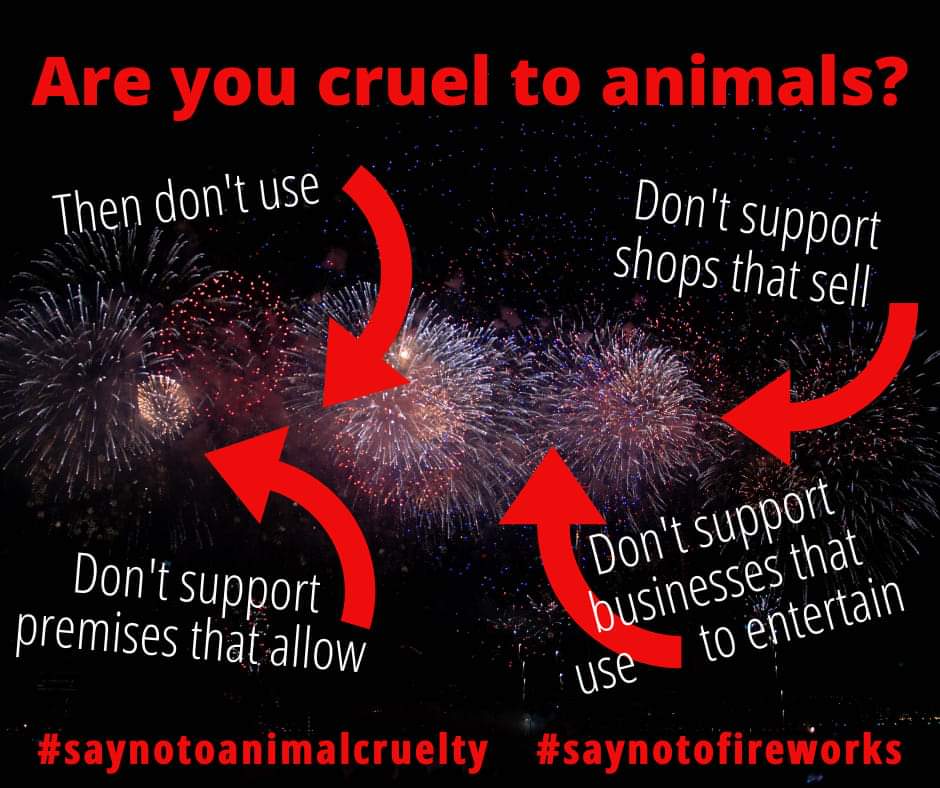
SILLY SEASON IS IN FULL SWING AND WITH IT COMES MANY ANIMAL WELFARE ISSUES.
This time of year is never a good one for animal welfare organizations and their staff. There is always an extra influx of surrendered and lost animals, injured and scared ones after fireworks events, convenience euthanasia, extra expenses with less donations and then the additional problem of animals as gifts, etc. Animal welfare never gets a holiday as it is a 24/7 kind of job which is physically and emotionally exhausting.
Let’s touch on a few things that happen during this time.

ANIMALS AS GIFTS
The festive season is not too far away, but whether it is a puppy for Christmas, bunnies for Easter, a kitten for a birthday, or something else, animals should not be on the shopping list! Some people buy animals for themselves and those who buy them for others. Both can be equally dangerous if the person who has to take care of the pet is not prepared to be a proper pet guardian/owner. Buying pets for someone else is a particularly bad idea! Here is why:
1. Animals are not and should never be seen as commodities. They are sentient beings and not disposable toys. Giving them as gifts sends the wrong message and is usually an impulse buy.
2. Animals are not gifts; they are 10-20 years (or more) commitments.
3. Many animals given as gifts find their way to shelters a short time after. According to some studies at least 14% if not more. This sounds low to you, but in an overwhelmed animal welfare system, this is 14% on top of crowded shelters and it could have been prevented.
4. Children’s attention span will fit better with a stuffed toy than with a sentient being whose needs should be a priority. Children lose interest quickly.
HAVE YOU CONSIDERED THE FOLLOWING?
- Interest: Did this person already express interest in owning a pet?
- Cost & Resources: Is the recipient financially capable, stable, and willing to pay for food, supplies, veterinary care, and other services over the animal’s lifetime? You don’t want to give them a gift of debt.
- Time & Energy: Does the recipient have time for daily exercise, interaction, and play? How active are they? How often is this person at home? Although you might love the animal, they do not come without work.
- Space: What kind of environment will the animal live in? How big is the yard or space to move in? Does the building or residence have any restrictions on pets?
- The Future: Do they plan to move locally or possibly overseas? Are there kids on the way or job changes coming? Could their financial situation change soon?
- Compatibility: What kind of animal would fit this recipient’s lifestyle best? Are they right for that animal? It is not just about the owner, but also about the needs of the animal.
- Age: Is this pet age appropriate? Some kids are too young to take responsibility for their pets and buying pets for elderly parents can be just as irresponsible.
- Health: Does the recipient have allergies or other conditions that would conflict with caring for this pet?
- Other Pets: Will this new animal get along with other animals in the household?
What is worst is there is usually a dump of animals during the season, but also early in the new year when animals were bought on impulse or as gifts and are now inconvenient. Some people even get rid of the older or other pets and get new ones for Christmas. Please don’t get animals as gifts!
LOST PETS
Irresponsible owners go away without having someone check in on their pets or they have someone check in who is not equipped to meet the animal’s needs or handle emergencies. Animals get out because it is easy, but also because they are left alone or worse poisoned for break-ins or stolen.
Secure your yard, and make sure your pets’ microchips are registered on multiple databases. Get a high-quality pet sitter who can spend a lot of time with them every day, especially if they don’t stay in. Make sure they have proper shelter during potential storms or extreme weather. I inform my vet who my pet sitter is and that they may bring them in if there is an emergency as well as who can make decisions if we can’t be reached and what happens to them if something happens to us when we are away. Have flyers ready in case your pet gets out and make sure your pet sitter knows what to do. Read our lost & found guide.

TIPS FOR FIREWORK PREPARATION
Pet owners dread holidays and occasions that feature fireworks. These events usually send domestic animals into a frenzy of worry or a state of frozen terror. Noise phobia (fireworks & storms etc.) is one of the top reasons why many animals try to get out or get lost. Dogs and other animals can seriously injure themselves attempting to escape during storms, fireworks displays, and other noisy events. If you don’t have a plan yet, start preparing now because you are responsible for them.
There are things you can do to help your furry family members remain calm when fireworks may be used, but executing your plan prior to your dog becoming stressed is most important.
- Use a teaspoon to knock on various surfaces around the house and follow up with a treat. This teaches your dog that startling sounds predict yummy food.
- Teach your dog to use a Kong or chew toy so that they can engage in this calming activity during the next fireworks occasion.
- Play with your dog during thunderstorms. Creating an association between play and the cracks of lightning will aid in generalizing a positive emotional state during fireworks.
- Make sure your microchip information is registered on more than one database and up-to-date as well as your animal has an up-to-date tag on their collar. This is a big challenge when we find pets with out-of-date details.
- If you know your animal is prone to extreme stress during this time, then see your veterinarian, before these events, for some medication. Never use human medication and discuss the use of natural remedies with your veterinarian.
- Make sure your yard is secure and safe as many pets who try to escape get stuck on palisades or hurt on another fencing.
Watch this video for more details.
WHAT TO DO DURING FIREWORKS
- On the day of the expected fireworks, look for your animals, especially cats, before the fireworks start.
- Close windows and curtains so your pet is not startled by sudden flashes.
- Keep your pets indoors with windows, doors, and pet doors shut & secured so they can’t escape when spooked.
- If your cat is not used to being indoors, provide extra litter boxes inside.
- Provide your pet with food before the fireworks as it can help calm them or they might be too stressed to eat later.
- Give your pet a safe place to hide with blankets and bedding to mask the sounds. Cats also feel secure and loves boxes.
- Put the TV or music on to mute the bangs of the fireworks.
- If your pet is hiding, don’t try to lure them out. This can make them more anxious & stressed.
- Distract your pet with treats or play time if they are pacing or displaying nervous behaviour.
- Stay home with your pets in these frightening times as you would with frightened children. You also need to stay calm as they can feel your anxiety.
This year volunteer at your local shelters when fireworks are being set off by these selfish humans so you can help comfort the animals. Help us educate others by sharing this information and reporting any unlawful selling or use of fireworks. If you find a lost dog or pet, please take them to the SPCA or local shelter!
CONVENIENCE EUTHANASIA
Convenience euthanasia happens when people don’t want to take care of an animal anymore and this type of euthanasia picks up during the holidays. I guess it is better than dumping it on an already overwhelmed animal welfare system, but still, you choose this animal and are responsible for them not only when it is convenient.
BATS BREEDING SEASON
Many people come across young, injured, or grounded bats and wonder how to help. This happens frequently now as we are in bat breeding season till late February. Know what to do in advance. Care and caution should be exercised and such cases should be referred to the nearest bat interest group, rehabilitation centre, or the SPCA.
Also read about the Pitbull crisis.
Please support reputable local animal welfare organizations by volunteering or donating this festive season, don’t buy pets as gifts, prepare and protect them during firework events and take proper care of your animals. Have compassion for those working extra hard when you are enjoying rest and time with your family.
Next week we will look at holiday safety tips.
WHEN YOU KNOW BETTER, DO BETTER!